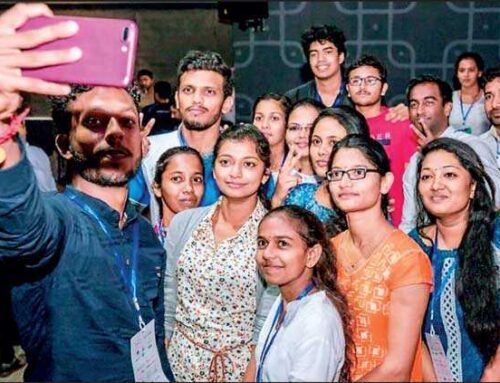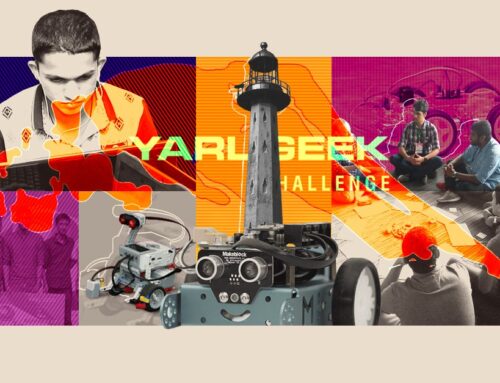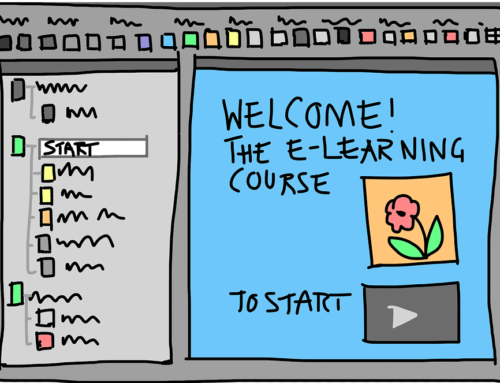By Jekhan Aruliah
“That which doesn’t kill you makes you stronger”, a much used saying originating from the 19th Century German philosopher Friedrich Nietzsche. While perhaps over-dramatic and often not true, this does apply to the Yarl Geek Challenge (YGC). YGC is a competition I have observed and in a small way supported over the last few years. A competition in which young people from around Sri Lanka form teams to develop a technological product or service. It is organised by the Yarl IT Hub, a Worldwide group of technology professionals with roots in Sri Lanka whose stated aim is “To make Jaffna the next Silicon Valley”. YGC welcomes competitors from the whole of Sri Lanka. It has the first of its two phases in Jaffna with the Final in Colombo. The first YGC was in 2012, and this year 2019 will be its eighth season.
While the YGC competitors race for the prize, I believe the real prize is participating in the competition. At each stage the YGC competitors benefit from mentoring and support. They work hard to make it to the Final where they will be exposed to the fiery furnace of potential investors. Investors who themselves have the experience of both losing and making real money in the tech industry. The mentoring and support in Phase1 is loving like a parent helping a child do the best they can. The judgements in the Finals of Phase2 are stern, more like the “real world”. Both are invaluable experiences.
The Prize in the Final is not the only prize. The competitors win prizes in the form of lessons and experiences throughout the competition. They learn the value of hard work, and the disasters that come from lazy sloppiness. They learn to challenge themselves to check they are going in the right direction, and change direction if they need to. Because they know if they don’t challenge themselves the judges in both Phase 1 and Phase 2 will challenge them and knock them over. They learn that teams only succeed if they are collectively and individually committed and they keep their commitments. We live in a country that is inured to lateness and unreliability and mediocrity to such an extent that few complain about it and fewer take the complaints seriously. The YGC teams learn that lateness, unreliability and mediocrity are the road to nowhere.
Maybe in your workplace there is some discipline, but how often have you been to a public meeting that started on time? How often have you sat in the auditorium as the organiser casually waits half an hour for stragglers, wasting the time of those who turned up promptly and teaching them next time not to bother being so prompt. Teaching them also to become stragglers! In the YGC they learn by not doing what they promise their team and their product will suffer. And they will be punished for it in the Competition. What doesn’t kill you makes you stronger!
One of the most valuable prizes in the YGC is getting to know who could be a good colleague for the future. Who is committed, focussed, reliable, and whose other talents complement your own. Perhaps most importantly, who has a good attitude and can listen, learn, teach, respect, and keep positive when things get tough.
Every now and then a company emerges from a team that bonded in the YGC. Perhaps they don’t continue with the product they created for the competition. One successful company I met tried to continue with their YGC competition product and was almost killed by it. They lost a significant amount of money in the process. But it didn’t kill them. They learned from the experience and they are now stronger for it. They have attracted investors, and are busy building other tech products and services and partnerships. I will write about them another time.
This article is about the winners of the first Yarl Geek Challenge in 2012, Team Arima. Arima is a great example of how a team successfully bonded at the YGC. I asked Arima’s CEO Jaykrishnan Rajagopalsarma where the name “Arima” came from. He said the team at the YGC was so focused on developing their product for the competition they had forgotten to name themselves. So in the hour before the competition kicked off they did a desperate brainstorm to find a name that was dynamic and would not offend anyone. Hence the electrifying and inoffensive “Arima”.
In its first incarnation competing at the 2012 YGC, Arima was made up of students from Jaffna studying engineering at Moratuwa University. I myself already knew Moratuwa University from my time running a software development operation in Colombo back in the 1990s. The high calibre of staff we recruited from Moratuwa meant any graduate who applied from there went to the top of the list for recruitment interviews.
Jay commented that life at Moratuwa University was a huge contrast to Jaffna. Jaffna lacks community and individual aspiration. Jaffna has very few role models to energise young people. In contrast the people studying at Moratuwa saw an open road to top companies and careers in Colombo and overseas. At Moratuwa they knew hard work and talent would be rewarded, a belief that is lacking in the Northern Capital. Those from the North who went to Moratuwa rarely wanted to go back North said Jay. Immediately after graduation in 2013, none of the YGC Arima team went back to Jaffna, with two moving to Singapore and two to Colombo.
In 2017 Jay did decide to return to Jaffna and setup a company with the name that proved so auspicious at the YGC, Arima. He decided to take up the Yarl IT Hub challenge “To make Jaffna the next Silicon Valley”. Of the four members of the original YGC team, three returned to Jaffna with two returning from Singapore. By 2019 Arima had grown to 25 staff.
Jay’s philosophy is not to recruit potential recruits based on interviews. Instead he gives promising candidates internships. Jay doesn’t think an hour or two of talking and testing will reveal the candidate’s strengths and weaknesses in the way actual work will. He is also not mesmerised by top class degrees from top class universities. While this may show an ability to perform in exams, it doesn’t prove an ability to perform in the commercial world. Arima’s employees include graduates and non graduates who have performed well in their internships at Arima. Prime sources of staff in the Jaffna team are Jaffna University graduates and Yarl IT Hub’s UKi training programme for school leavers. Jay expressed his appreciation to Ramoshan Canagasaby who grew up in Jaffna during with war years, moved to the USA in the 1990s, and has been holding senior roles in the tech sector in California. Jay also wanted to highlight the powerful impact Yarl IT Hub has had building the tech culture in the North.





